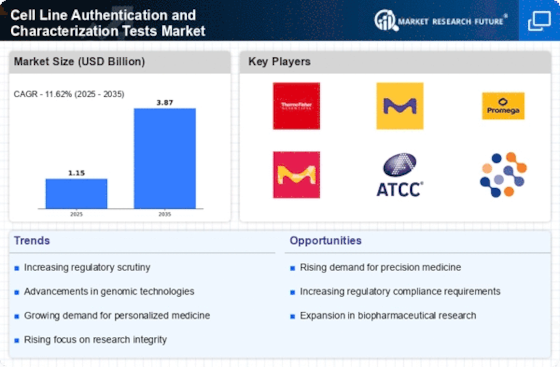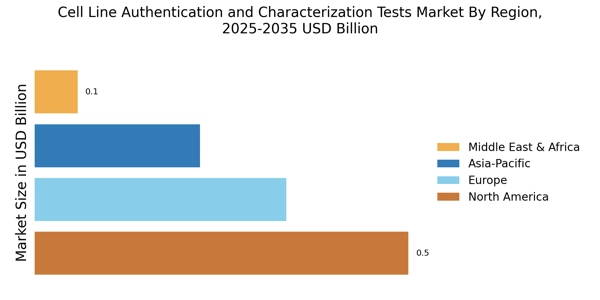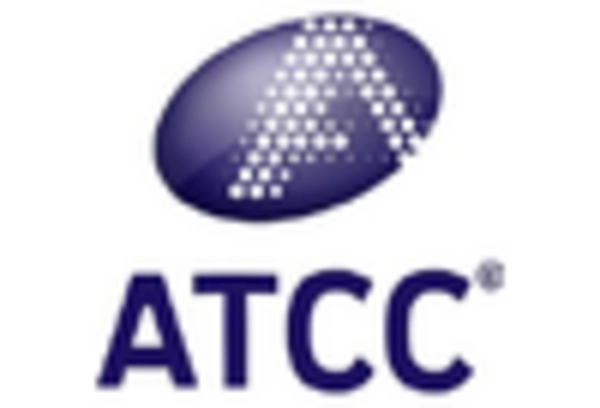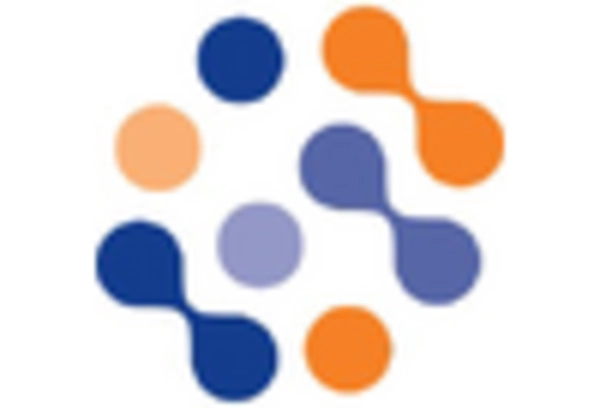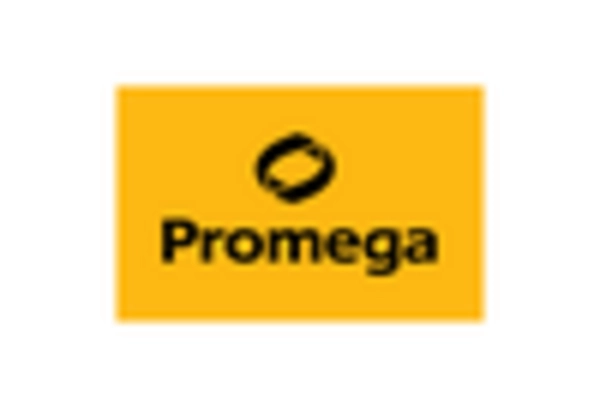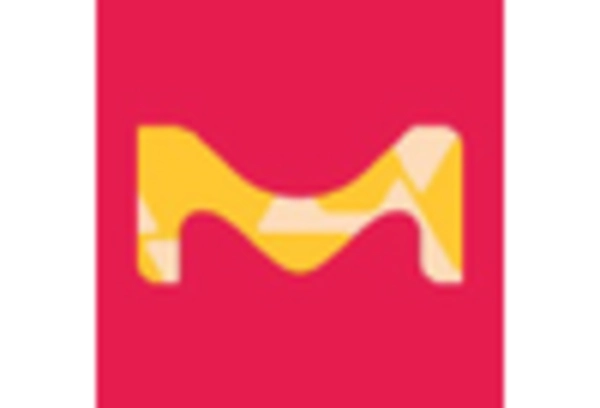Expansion of Biopharmaceutical Sector
The biopharmaceutical sector is experiencing rapid expansion, which is significantly impacting the Cell Line Authentication and Characterization Tests Market. With the increasing number of biopharmaceutical products in development, the need for robust cell line characterization is critical. According to industry reports, the biopharmaceutical market is projected to exceed USD 500 billion by 2025. This growth necessitates stringent quality control measures, including cell line authentication, to ensure the safety and efficacy of biopharmaceuticals. As a result, the demand for cell line authentication tests is expected to rise, driven by the need for compliance with regulatory standards and the assurance of product integrity.
Rising Demand for Personalized Medicine
The increasing focus on personalized medicine is driving the Cell Line Authentication and Characterization Tests Market. As healthcare shifts towards tailored therapies, the need for accurate cell line characterization becomes paramount. This trend is evidenced by the projected growth of the personalized medicine market, which is expected to reach USD 2.4 trillion by 2025. Accurate authentication of cell lines ensures that researchers can develop effective treatments based on individual genetic profiles. Consequently, the demand for cell line authentication tests is likely to surge, as researchers and pharmaceutical companies seek reliable data to support their personalized medicine initiatives.
Increased Funding for Research and Development
The surge in funding for research and development activities is a key driver of the Cell Line Authentication and Characterization Tests Market. Governments and private organizations are investing heavily in biomedical research, which is anticipated to reach USD 200 billion by 2025. This influx of funding supports various research initiatives, including those focused on cell line development and characterization. As researchers strive to produce reliable and reproducible results, the demand for cell line authentication tests is likely to increase. This trend underscores the importance of maintaining high standards in research practices, thereby propelling the growth of the cell line authentication market.
Regulatory Pressures and Compliance Requirements
Regulatory pressures are a driving force in the Cell Line Authentication and Characterization Tests Market. Regulatory bodies are imposing stringent guidelines to ensure the integrity of research and development processes. Compliance with these regulations is essential for researchers and companies involved in cell line research. The increasing emphasis on quality assurance and risk management in research practices is likely to elevate the demand for cell line authentication tests. As organizations strive to meet these regulatory requirements, the market for cell line authentication is expected to expand, highlighting the critical role of compliance in maintaining research standards.
Technological Innovations in Cell Line Characterization
Technological innovations are transforming the Cell Line Authentication and Characterization Tests Market. Advances in genomic and proteomic technologies are enabling more precise and efficient cell line characterization. Techniques such as next-generation sequencing and CRISPR gene editing are becoming increasingly accessible, allowing researchers to authenticate and characterize cell lines with greater accuracy. The market for these technologies is projected to grow significantly, with estimates suggesting a compound annual growth rate of over 10% through 2025. As these technologies become more integrated into research workflows, the demand for cell line authentication tests is expected to rise, reflecting the need for high-quality data in scientific research.


